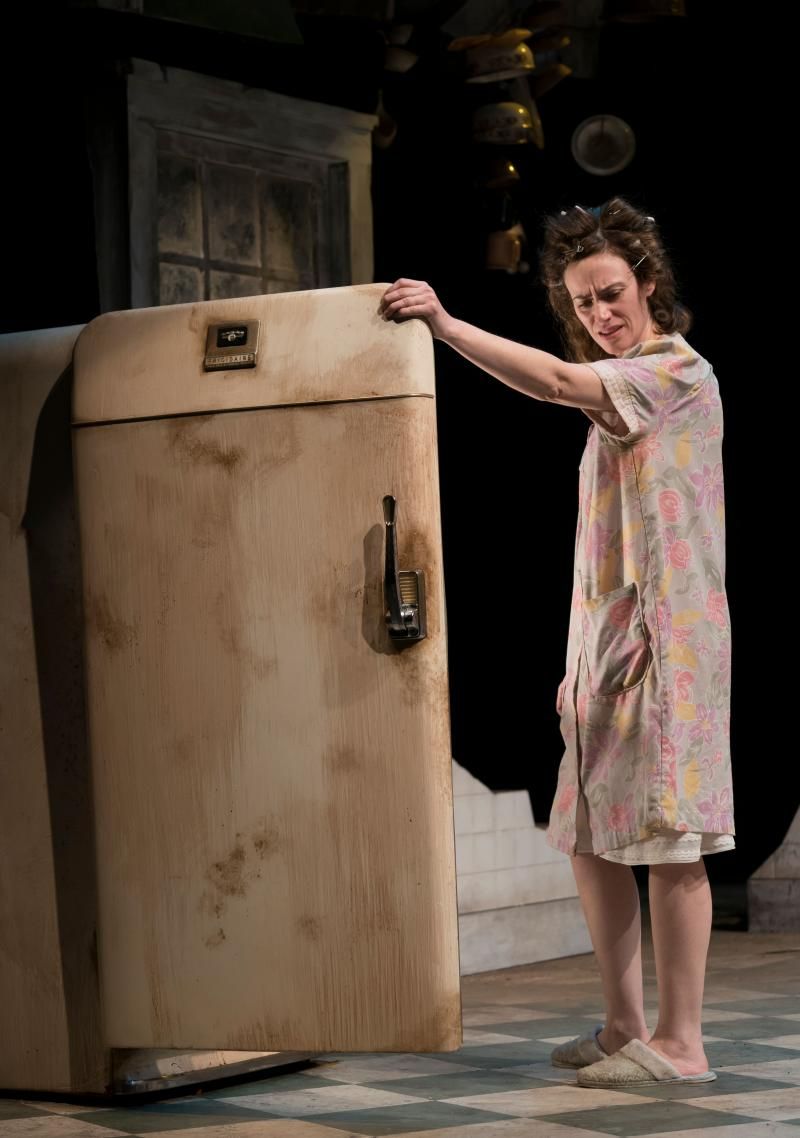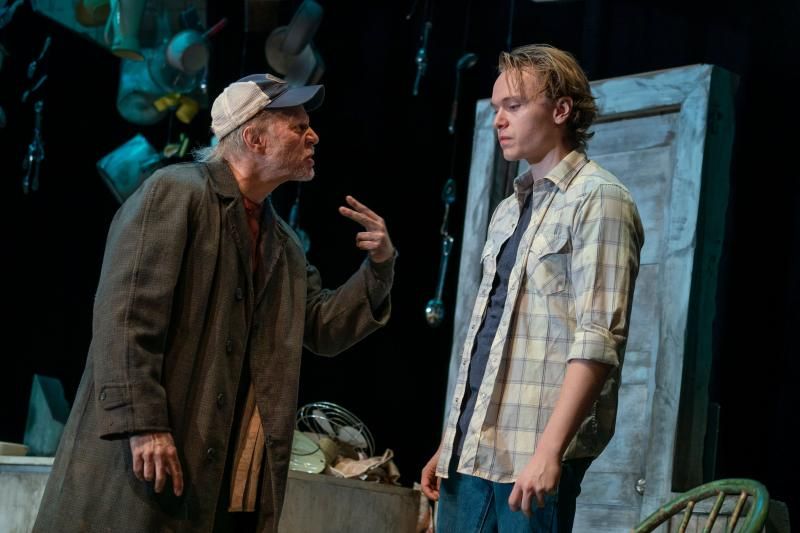Review: Well-Off Predators Feast On The Poor in Sam Shepard's CURSE OF THE STARVING CLASS
Latecomers to director Terry Kinney's finely-acted Signature Theatre revival of Sam Shepard's 1977 dysfunctional family drama, Curse of the Starving Class, will miss the showstopping bit of stagecraft that opens the production, as set designer Julian Crouch's kitchen interior of a worse-for-wear California Valley farmhouse literally becomes a house divided, splitting horizontally with the top half appearing to crumble upwards.

This symbolic visual that serves as the background for the entire piece seems to reinforce the verbal symbolism in the playwright's text, when a story is brought up about a low-flying eagle preparing to feast on a pile of freshly castrated lamb entrails until a hungry cat approaches with the same menu in mind. Instead of sharing the thrown away scraps, the eagle lifts the cat off the ground and the two start clawing at each other in a fight that will undoubtedly kill them both.
"The cat's tearing his chest out, and the eagle's trying to drop him, but the cat won't let go because he knows if he falls, he'll die," a character explains. "And they come crashing down to earth. Both of them come crashing down. Like one whole thing."
Audiences can decide for themselves who is the eagle and who is the cat as the story of the Tate family unfolds before them.
Continually drunk and heavily in debt, patriarch Weston Tate (David Warshofsky), spends a good chunk of the play passed out on the kitchen table. His wife Ella, (Maggie Siff) has recruited real-estate shark Taylor (Andrew Rothenberg) to help her sell the land behind Weston's back so she can use the money to start her life over in Europe, unaware that her husband is hoping to escape to Mexico after finalizing a cash sale of the land with bar owner Ellis (Esau Pritchett), who has agreed to pay off Weston's debts.
Their son Wesley (Gilles Geary) is the only one dedicated to somehow saving the family farm and diligently works to sustain its upkeep, including caring for a lamb (real and attention-grabbing) that has been infested with maggots. Teenage sister Emma (Lizzie DeClement) is an excellent student and dreams of running off to Mexico to become a mechanic.
An early indication of the display of family dynamics to follow comes at Emma's discovery that her mother has boiled and eaten the chicken that her daughter has raised, slaughtered and cleaned for a 4-H project on how to properly quarter a chicken for frying. Wesley then urinates on the chart for her project, saying she should work on more important things.

(Photo: Joan Marcus)
For the play's three acts (Kinney combines the first two and proceeds with one intermission), we see each member of the Tate quartet try to fulfill a personal dream while well-off predators like Taylor and Ellis take advantage of their desperation for their own profit.
CURSE OF THE STARVING CLASS won Shepard a 1977 Obie and, along with plays like TRUE WEST and BURIED CHILD, helped establish the playwright as a unique voice that used dark humor to dissemble the traditionally romantic view of America's rural landscape.
Reader Reviews
Powered by
|
Videos

